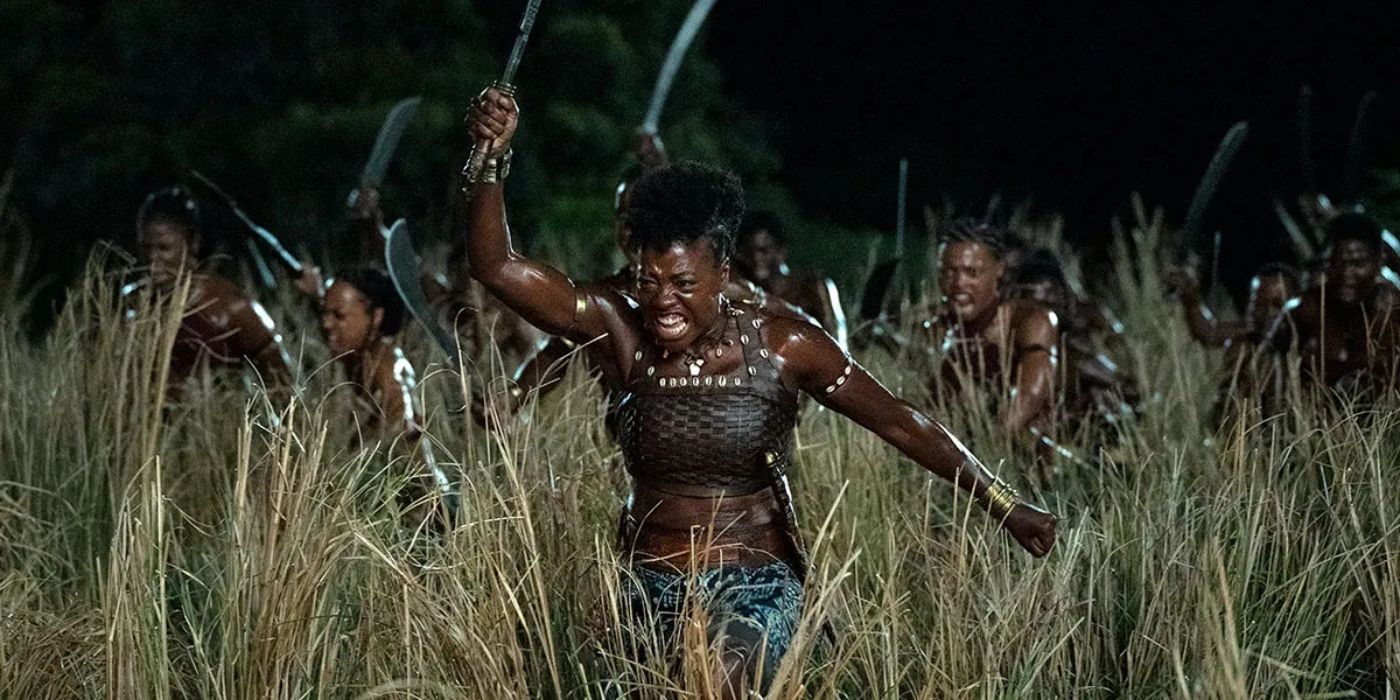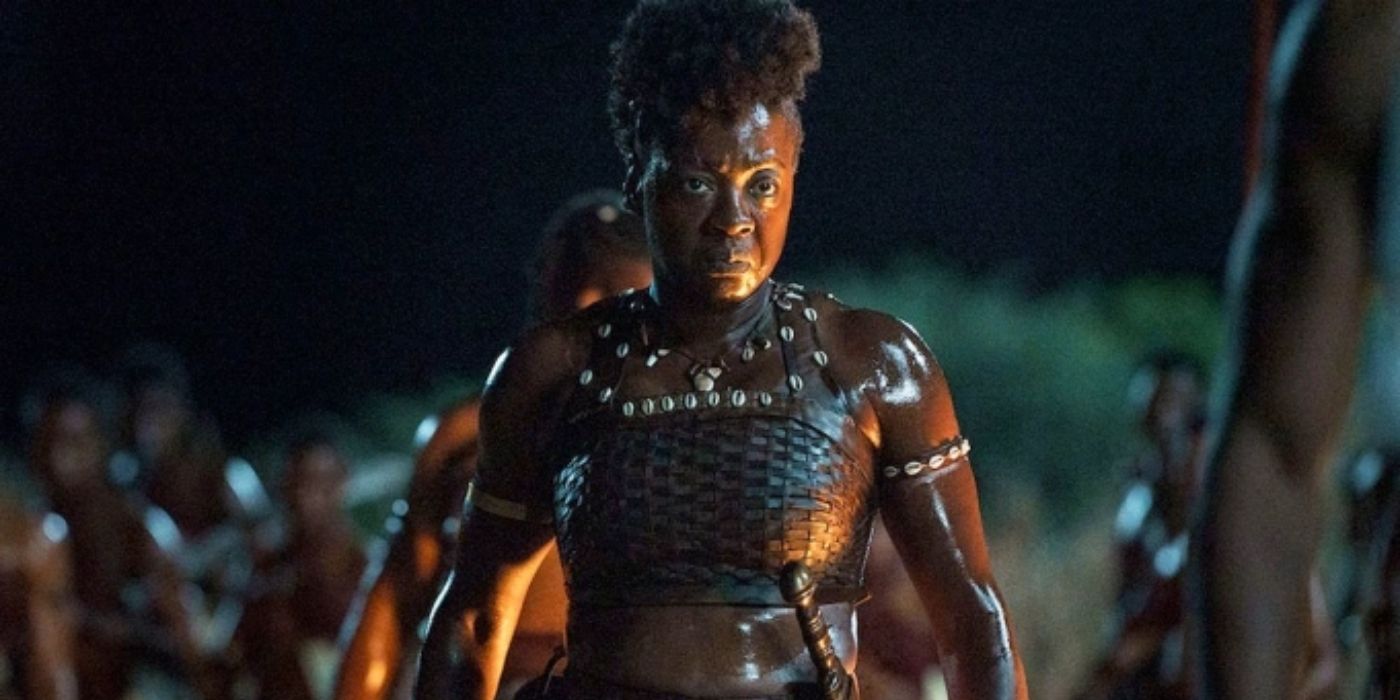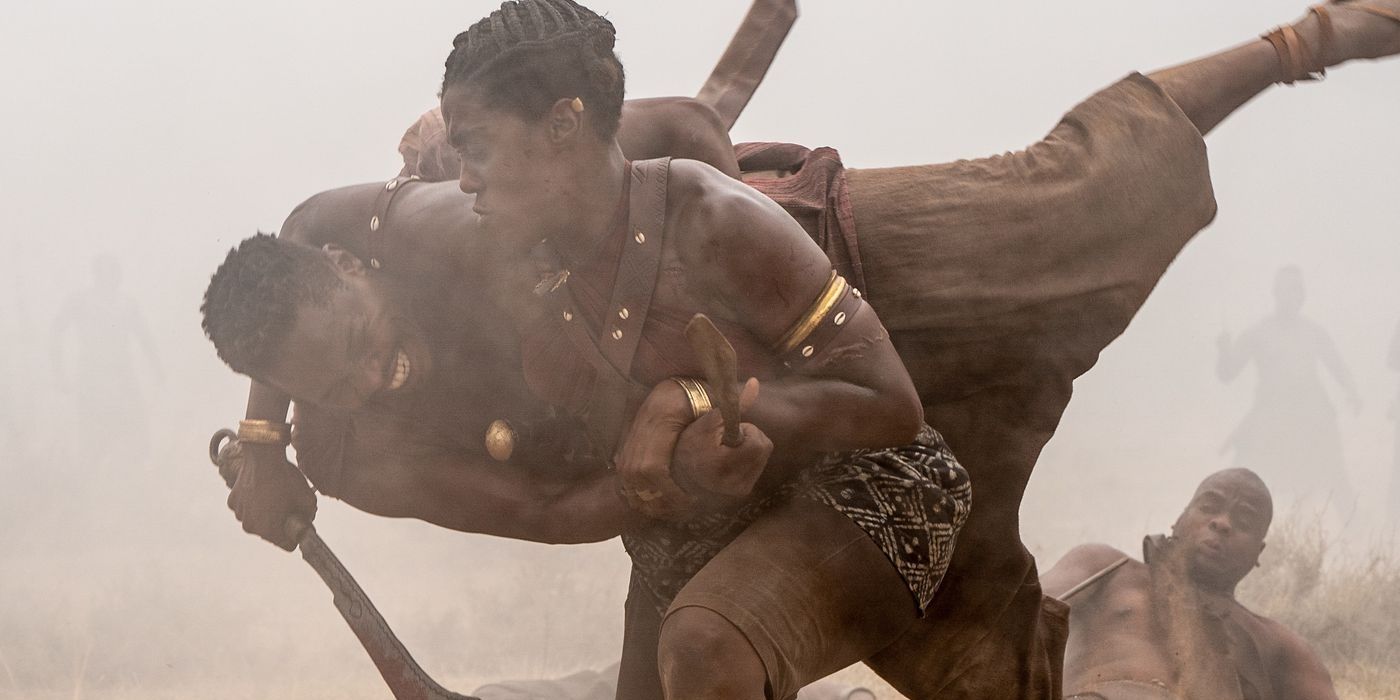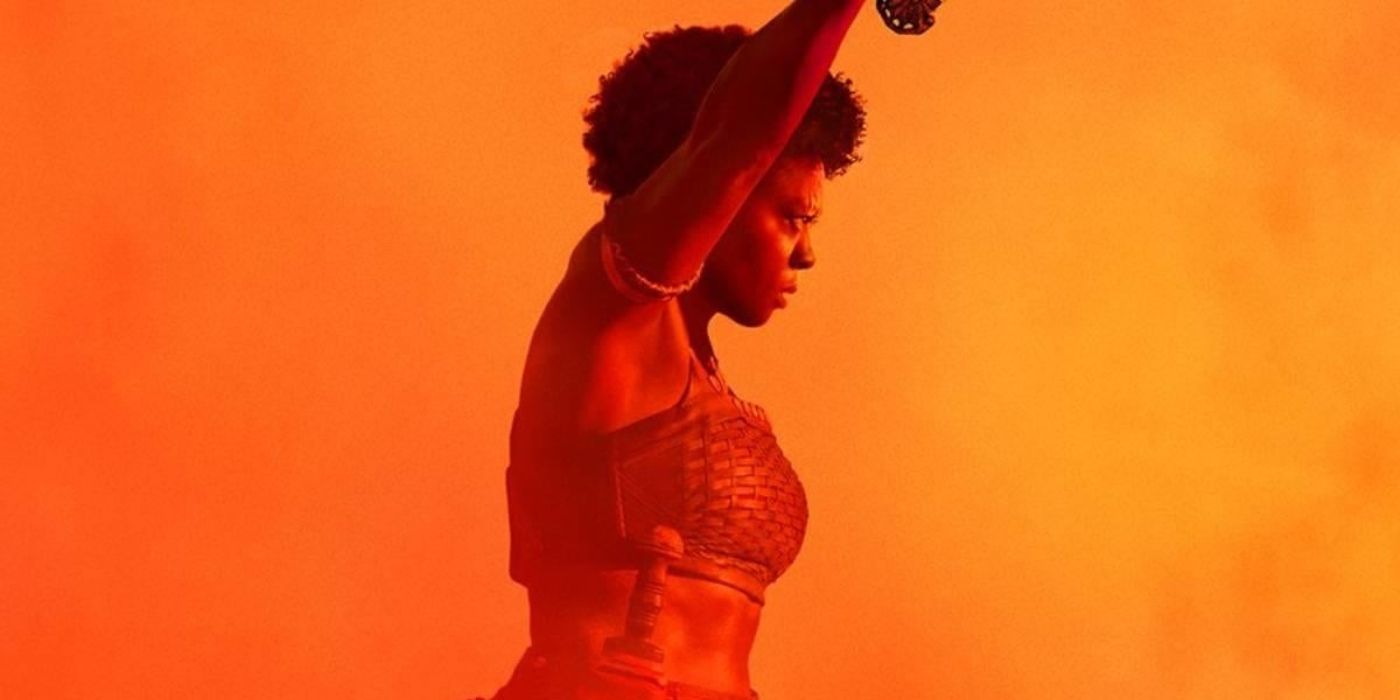The Woman King, starring Viola Davis and currently playing in theaters, has been met with a positive reception critically and commercially. The film follows the story of the all-female band of warriors, known as the Agojie, who protected the African Kingdom of Dahomey. It also features some truly incredible sequences, especially in terms of combat and action. This is in part due to the experienced team who was brought on for the project, including Jénel Stevens.
A stunt team veteran of the Marvel Cinematic Universe and a host of other productions over the years, Stevens got the opportunity to step into a leadership role in the new film, helping devise the fight sequences that play throughout. During an interview with CBR, The Woman King fight choreographer spoke about stepping into that leadership role beyond her position as Viola Davis' Stunt Double, the way she adopts elements from differing martial arts styles into her own, and which MCU character sticks with her the most.
CBR: First off, congratulations on The Woman King! Given the positive reception the film has been getting, what has this experience been like from your perspective?
Jénel Stevens: Thank you! Obviously, a feeling of pride, for sure. Love, excitement -- I had no doubts, though, with this film. Obviously, there's always nervousness over how something is going to be received, but for me, I feel like it could not have been not well-received, you know what I mean? It's definitely a movie that we haven't seen before. It's women empowerment, to the utmost. It is Black females doing the greatest stuff, being badass, and representing the history of what this was. So that in and of itself has never been seen before on screen, and it needed to be expressed to the world. I'm so happy that the world received it the way that they have, and they're going to continue to receive it, and how excited everybody is to watch it.
This was also a big showcase for you in particular, as you got to be credited as Fight Choreographer for the film. As someone with plenty of experience in fight choreography as a performer, what was it like to step into that leadership role?
I was humbled for sure, and I felt the respect as soon as [Fight Coordinator] Danny Hernandez told me that he was going to credit me as choreographer. I was very, very excited to do so, especially under the tutelage of Johnny Gao, one of our Fight Coordinators. Him, the South African core team that's over there as well, all of their fight coordinators... When I got there, actually, the proudest moment for me was when I walked in and especially when I started to teach the performers in the room and the actresses as well. Going through basic strike patterns... When I stepped in front of the class, I instantly felt the respect of the South African performers, especially the Black females, seeing me come in as an instructor because everybody else was male.
There was no real Black female representation in a role like that, and for them, I think it was inspiring -- I hope, but that's what I felt from them. I felt the respect. I felt them being inspired and realizing that wow, not only can I be here on this film as a performer, but I can be up there teaching as well. So I felt an instant responsibility to do this and get the word out that this job does exist, and we can kick butt in it just like the women kick butt in that movie. That was a moment of pride for me as well. I really embrace that, taking away from this project those leadership responsibilities that I felt.
What was that experience like on the film? How did that process play out, and how much focus was paid to the specific action of the performers versus matching body language with the rest of the cast?
I have a martial arts background, and me and Daniel Hernandez come from the same martial arts lineage. So that was easy to collaborate with him. Then Johnny Gao was trained in Wushu, as well as other martial arts. So it's great to collaborate with people that have different styles, but also people that are in your lineage as well. In doing that, we created or taught the basic strengthening patterns of that... It's more of showing them how to do it, the way it should be done. So it was more them learning the style first, and then the movement just came because once you have that motion down in your body, then you look similar to everybody else.
In other projects, there's other people with different styles -- their own style shows. It's great to learn from people, to do this kind of martial arts barter system where it's like, "Oh, I'll teach you my moves if you teach me yours." I love that about this industry and that we all come from different walks of life. We all come from different styles of martial arts, and we meld them together or pick a style [and] use that as the format to create the choreography.
What surprised you the most about this experience?
There were so many things that surprised me in such good ways -- especially the progression of the actresses. Their progression, what they became on screen, was just amazing to watch, and the fact that they did about 95 to 90% of their own stuff -- a lot of people are like, "Oh yeah, stunt doubles, they edited it all together." It was like, "No, they actually did most everything that you see on screen," which was fantastic. So that was definitely a great thing to watch -- to be a part of that and to just see the growth from beginning to end... just being there in the presence of everybody.
The energy that people brought to the film, the fact that the stunt performers in Africa, a lot of this was their first job like this. They've come from dance backgrounds and stuff like that. Not many of them had this experience, and just seeing that progression in them level up so fast, to a point where we're getting them to look like they've been doing this for decades. Everybody stepped up to the plate. Everybody worked hard, and it was just so great to be a part of that.
I'm with Comic Book Resources, so I've got to ask an MCU question, given all your experience in that franchise. Looking back at all the films you've gotten to take part in and the ones you're working on now, what is that experience like? Are there any particular characters you really adored getting to be?
Honestly, I love doing all of it. Stepping into all the different characters that we have, it's just awesome. Being a superhero is everybody's dream, you know, and to be able to do that on screen... it just feels like a little kid's dream just came true. Obviously, I guess I'm definitely biased, but being a Dora Milaje was one of my favorite things to do. I know staff, which translates to spear... I came in with my own style, but in [Black Panther], we had to have it be a little more cinematic, a little bit more flowery, and a bit more pretty -- a lot more twirls.
Learning that aspect of that weapon was awesome, and it just added more tools to my toolbox, which I love. That's pretty much the basis of the martial arts I do. It's about absorbing what is useful and discarding what's not, and it incorporates all the other different types of martial arts. There is no "This art is what you should do, and everything else is wrong." I don't like that mentality, and I love that you can incorporate all these styles... It was great to do that one. Just coming into all the different corners of the universes and meeting all the other characters and stuff like that -- it's like playtime. It's awesome.
The Woman King is now playing in theaters.




